- Home
- Anne Spackman
The Last Immortal : Book One of Seeds of a Fallen Empire Page 11
The Last Immortal : Book One of Seeds of a Fallen Empire Read online
Page 11
* * * * *
The tendays passed swiftly, as tendays on Tiasenne always did. The day lasted but a brief eleven hours, and Eiron slept between eight and ten hours at a time. This wasn’t particularly unusual for him, except perhaps that he now decided his own sleep schedule. Despite the short days with their five hours of sunlight, Tiasennians traditionally slept for periods of seven hours or more, often missing daylight hours completely. They were the only creatures on the planet oblivious to its natural temporal cycle.
Sometimes he woke up late into the cold night and then stayed awake throughout the remainder of that evening and over the course of the next short day and night. However, it didn’t matter when he chose to rest; every time he returned to the main chamber Alessia was already working on her daily chores. He figured she must sleep only a few hours at a time. He had never actually seen her sleeping.
Most often she sat by the fire, cooking or preparing his medicines, grinding her ingredients to a fine powder. He felt idle watching her and decided to distract her with amusing stories of his Academy days. He wasn’t sure she wanted to hear them, but it helped him to pass his time.
Then abruptly Alessia would leave again through a barred doorway in the wall for wherever it was that she went. Perhaps she went to her room to sleep. He had begun to time her absences; she was never gone longer than a few hours.
When left alone, Eiron strolled through the other rooms, all of them an odd mixture of the primitive and of highly advanced technology. Alessia’s garden was something else altogether, an alien greenhouse almost as large as the main chamber; its walls had been hollowed out of the same granite and sandstone, yet the roof glowed with a bright blue light so intense that he had to avert his eyes until they grew accustomed to it. Peculiar blue plants with cup-shaped indigo flowers swayed in the eerie glow, as if moved by an artificial breeze. When he touched a petal, the flower always stopped. As he removed his hand, it swished back into time with the others.
Another room stored various foods and liquids in cylindrical clear vials and square grey-blue metal containers; in another, he found a mossy green bank by a large pool one afternoon. The clear blue water sparkled in the dim light, cut into silver arcs where a shaft of sunlight seeped through a crack in the roof overhead. Water trickled down the shelf of stones on the other side of the cavern from some invisible above ground source, collecting in basins then cascading down.
Now this, he decided, was what the poets called paradise.
He plunged into the cool water and swam a little, taking care not to move too abruptly, then stretched out on the mossy bank until he was dry. Swimming was a luxury for the citizens of Inen, but he had learned how to swim as a boy while on vacation with his grandfather.
He returned the next day and the next. Soon, he had gotten into the habit of going there every day or night when Alessia left him. The exercise gradually began to renew his strength as his torn muscle healed. The strokes hardly bothered his wounds anymore.
The natural waterfall made a peaceful sound; he was definitely going to miss this when he returned to Inen. He seemed to lose track of the time here and fell asleep on the bank more often than not. However, a few times a distant rumbling sound intruded from the world outside.
This time, the noise woke him at sunset. The small shaft of real daylight faded into a purple glow; with it, the artificial light above also dimmed, and the water became a cloudy grey mirror. Even though the timing was right, it was obvious to Eiron that the light didn’t come from the sun, Rigell, through any kind of hidden skylight above. It was too intense, more so even than the rays of the bluish-white star that bathed the twin planets Tiasenne and Orian in its glow.
His stomach growled slightly as he made his way into the other room where Alessia was preparing their evening meal. He shivered, still not completely dry from swimming, and sat down beside her to warm his hands. Darkness descended rapidly around them; soft shadows lingered on the walls and floor just beyond the range of the firelight.
“Anything wrong?” She asked as he began absently to peel and arrange some of the dessert fruits he recognized from Alessia’s garden. They were small blue and pink fruits, and one with a dark purple color.
“Not at all.” He said, brushing his damp hair out of his eyes.
“You did that?” She asked, indicating the pot of indigo flowers on the table that he had brought in earlier to liven up the room.
“Yes, I did.” He shrugged. “You don’t like it?”
“Oh no, I do.” She insisted. “But shouldn’t you be more careful? That pot is heavy. You might have ripped a stitch—”
“It wasn’t any trouble.” He shook his head firmly. “I’m almost good as new. See?” He laughed and slapped his stomach once to demonstrate, suppressing a pained grimace.
“Yes, so I see.”
“Thought you might want some color in here.”
“Thank you, the flowers are lovely.” He wondered again how she could tell. After all this time, she still wore the dark blue robe, with the hood pulled low, though he could see her jaw and lips. She had beautiful lips, he thought.
“I’ve never seen anything like them,” he said. “Are they from Orian?” It was obvious he liked playing with them. The flowers swayed only lightly back and forth, now that the light had gone. But if he moved them closer to the light sometimes, they really started moving fast. It was a game he played to pass the time.
“They’re not from Orian, but I can’t say where I got them.”
Eiron stood up and began to hover closer to the soup pot. He had grown accustomed to Alessia’s cooking—all of it was delicious, and spiced with medicines that made him feel his injury less. The food seemed to heal him more rapidly—or at least to make him feel as though it was doing him some good.
Eiron had hardly had such a pleasant time in all his life as he had known here in her world, even though there wasn’t much to it, and hardly anywhere to go. The food here tasted better than anything he was used to, and he only needed a little; his thoughts were positive—he felt as though it wouldn’t be long before he was entirely healed—and better. The exercise in the lake was doing him good. He was enjoying himself more and more every day, and hadn’t given much thought in several days to going home.
“It won’t cook any faster,” she said after a moment.
“It smells good.” He drew back with a sheepish laugh. “Hey, isn’t it time that you show your face? You must be pretty tired of covering yourself up like that.” He said. One thing he couldn’t figure out was how she could enjoy her life without being able to see properly—she could eat well enough without the hood getting in the way. He supposed that covering herself up was entirely because of him rather than a religious habit.
She didn’t say anything.
“I would feel better if I didn’t,” she said. “For now.”
They hadn’t spoken in some time about anything important, about how she was able to make it seem as though the wall was there and then not there—surely it was some kind of advanced illusion, better than any holograms being generated in the Tiasennian government research labs. Explaining the whole business to Headquarters was going to be tricky, if he submitted a detailed report. The High Command might think his head injuries had affected his mental faculties.
While the illusions of disappearing doors and lightswitches had at first intrigued him, he no longer thought much about it. Since the day that he had first left his recovery room, none of the doors and openings had changed—apart from the door to the chamber he assumed was Alessia’s. He could understand her keeping that one sealed. He admitted that for a while now he had some curiosity to see what she looked like, and might have been tempted to look in on her, as rude as that might be.
He was sort of glad he couldn’t, since it kept him from having to struggle with his conscience and with the temptation of wanting to have a look at her—but just thinking about it could do no harm.
“Well I’m glad you’re interested,
because it’s done,” Alessia said suddenly. She took a bowl, filled it, and gave it to him. “Be careful, it’s hot,” she warned.
He took it with perhaps too much eagerness. But he didn’t stand on ceremony any more.
She got a bowl and sat down. There was a clear glass pitcher on the table. They had reached the point where he could just serve himself, so he lifted it up and poured a chilled glass of cahlda, a lightly spiced, watered-down wine.
He loved the spice in the wine. Under ordinary circumstances, such as back in his life in Inen, he would have abstained, just to keep the wine from dulling his thinking. It was the sort of life there that he had to keep his wits, in case he had to fly, and he didn’t like the injections that would be administered to clear his head for flying if he wasn’t completely flight-worthy, if he had drunk any inebriates. Pilots were not really supposed to drink certain beverages except for time on leave.
This qualified as leave, so he had more than indulged in the inebriates. There was an additional something extra that made the wine particularly good—he wasn’t sure what and he didn’t ask. He sipped from the edge of the soup bowl.
“I recognize this,” he said. The soup had pale bird meat in it and some vegetables, cat’s tooth, with a sharp spice to it. “It’s like something my mother made when I was a kid.” The purple root vegetable was familiar to him.
“It’s urbin stew. An Orian soup, for a change.”
His expression clouded a little, as though he was disturbed in good and bad ways by this change.
“Don’t you like it?” she asked.
“It used to be my favorite,” he said. “Until I couldn’t get it any more.” His voice turned slightly melancholy.
“So, you’d love some more,” she said, getting up.
“I can get it,” he offered.
“I don’t mind,” she said. “I’m not really hungry, and it’s a change being able to do something for someone else.”
He smiled. She took his empty bowl and headed to the soup pot.
Without warning, an ear-splitting noise passed overhead, shaking the room like an earthquake. The stew pot jostled over the fire, and liquid spilled over the sides, hissing as it fell onto the flames.
Hot liquid splashed up, onto the back of her hand. She didn’t even flinch.
“Are you hurt?” Eiron asked, with concern. He got up quickly to help her, and reached out for her hand. He quickly examined it for burns. He found none.
“You’re not burned,” he said, squeezing her long fingers. “Don’t be afraid,” he said after a moment, feeling through her hands that she was shaking—in fear.
“Is that the Orians again?” he asked. “You’re afraid they might be back?” Now he was really surprised. She’d always been so composed, so competent in her work that he had never expected this kind of reaction. It stirred protective feelings in him, but he had just begun to notice the steel tension in her slender arm.
He struggled with even more surprise. What he sensed was an unusual physical strength in her body, as he grasped her hand.
Her skin was soft, infinitely soft, but her hand and body were as taut as a wire.
“Come and sit down. They won’t be able to find us down here—or they would have found you by now, right?” he said.
She turned to him. “I’m not afraid of being found. I’m afraid of what I might do.”
This response caught him completely off guard.
“About what?”
She looked down as though considering how to answer, then stopped.
“Your father was an Orian. You never did say much about it.”
He winced, released her hand, and sat down in front of the fire. She sat down a moment later, just at the edge of the stone ring. He turned to stare into the fire, then leaned forward, his elbows resting on his knees, his hands on his cheeks supporting his head. After a moment, he reached down and lifted up a twig that had survived the fire and cast it absently into the blaze.
“My father’s parents got out of Orian before I was born. Is there some particular reason you’re asking this?”
“I just wondered.”
“I suppose it doesn’t hurt to tell you about it. There were thousands of political refugees trying to get passage to Tiasenne about sixty years ago. The Tiasennian government considered my father’s parents valuable enough to be given some of their precious entrance passes. My father was born and raised in Inen.”
“He must have had a hard time growing up.”
“He was barred from most professions. Including the military.”
“So how did your parents meet?”
“My father’s parents were astrophysical engineers. They passed on their knowledge to him—some of it surpassing what Tiasennian Research Science had at the time. So that’s how a second-class Orian citizen became valuable, though Tiasennian internal security never stopped watching him. At that time, Alton had everyone convinced that there were spies everywhere.”
“I know.”
“Actually the Tiasennian Research Division wasn’t very particular about what Dad was because they needed him. They wanted him for their project to develop new space fighter engines and had him transferred to work in their research labs at the Academy—you know our latest comet fighter, the flying Pegasus, evolved from the one he worked on.”
“And my mother was in training there,” Eiron could still visualize the great scientific and military complex stretched over the five low hills northeast of Inen. “She was a Nikean Group Scorpion test pilot. Vaikyur couldn’t get her to stick to anything safe. Mom went up to Dad one day and told him to get a new job. She didn’t like his Skyhawk prototype. She said, ‘You definitely need to work on this clunker’.” Eiron had started to laugh as he told the story. “She said people were always afraid to tell him what they really thought. Which was probably true, considering that he was a tremendously terrifying Orian.”
“Then what happened?”
“Dad took it pretty well, I hear.” Eiron smiled. “He just stood there while she went on and really lashed into him. Then he had the team working hard to re-design the whole thing. I think somehow that the Tiasennian slave-drivers in R & D had something to do with it, though. But it was a nice story.”
“When my mother finished her training, she and Dad decided to become attached. They spent a lot of time together.”
“Your grandfather had no objections.”
“At first. But Grandfather is a good man. And he was busy with the Fer-innyera at the time, so I think he didn’t hear about it until Mom had pretty much made up her mind. And she was in love. A lot of other people thought she was out of her mind. It meant she would be watched for the rest of her life.”
“You sound as though you miss her.”
“I hardly remember either one of them.” Eiron admitted, suppressing emotion. “They died when I was only five years old.”
“They died?” Alessia repeated. She decided not to ask.
“Grandfather took me in and raised me,” Eiron explaind, his voice beginning to betray raw bitterness, a bitterness he had never exposed to anyone.
“You had a new home to go to—was it like having a family?” She seemed more intensely interested.
“Grandfather was busy with the Fer-innyera.” Eiron sighed. “I spent a lot of time in the indoctrination facilities on my own. He was a Miran at first, then he made Senka, and then he was the Senkaya-Sukura. I saw him when I could. Meanwhile, the people at the facility tried to punish me for being half-Orian, and so on. I don’t think about it much. I got out of there, and by the time Grandfather was a Senka, they stopped punishing me. Grandfather had me tutored by his friends, mostly, until I entered regular training. I never quite fit in. I just put on a good act.
“But even at the Academy, it was the same as at the early training facility. People seemed to expect me to overcompensate for my racial flaw by rejecting and criticizing anything Orian at every opportunity. If it hadn’t been for my grandfather’s new
status as public hero and Commanding Officer of the Air Corps, I think the other students would have despised me once they found out whom my father was, for that completely unchangeable part of who I am.
“But that isn’t the real reason why I hate the Orians.” He said, with a new surge of bitterness.
She jerked back, as if slapped. “You’re so bitter.”
“I wasn’t until I found out what really happened to my parents. For a long time, I thought that they had just died in an accident. The truth was that the Orians considered my father a traitor—somehow or other they found out about him. So I guess there really were spies in the government, or the Orians wouldn’t have known about him.
“A team of Orian infiltrators captured my parents with the entire Cygnus Astrophysical research and development team. Their bodies weren’t found until a few days later—floating in the Orashean Reservoir. The High Command covered it up.”
“I’m so sorry.”
“Not as sorry as I was.”
“Tiasennian hands aren’t clean, either, you know.”
“My grandfather tells me not to despise or blame the Orians. It’s not as though the common people have much to do with what their leaders decide. But I find it difficult to sympathize with people who can tolerate such cruelty, who know what’s going on and let themselves be controlled by a ruthless, murdering dictator.”
She winced.
“He isn’t a dictator.” She said.
“Who?”
“The Orian Great Leader. And if you truly understood your father’s people, you would pity them.”
“I’m sure I’d get over the feeling.”
“Would you?” she asked hesitantly.
“Try me.”
“All right. Everyone on Orian is going to die. Every living thing there will perish in a planet-wide fire. The Orian civilization will cease to exist. It will be as though it never even existed at all.”
“How do you know that?” He felt the color drain from his face in a massive shiver. “That isn’t true—is it?”
“It is true. And what is worse—the Tiasennian government has known this for a long time. That is why the war started. The Orians begged for a new home on Tiasenne, and the Tiasennian government refused to help them.”
“No,” Eiron said, in shock. This was unbelievable. A strange pang of regret struck at him for the planet he had never known—his father’s planet. If it were true—why didn’t anybody know? He struggled for a moment. He couldn’t believe it. He could hardly breathe. He wanted to stand up, to do something. He looked around the room. He didn’t know what to do, or to say.
After a moment, his shock and hostility retreated.
“You shouldn’t blame the Orian leader for your parent’s death. If anyone is to blame, it’s me. I didn’t know what I was doing. I still don’t.”
“It is not your fault.” These were the first words that came out of his mouth. He looked at her in wonder. As though he were looking at a young woman who perhaps needed his protection. An innocent who wasn’t involved in anything. Who lived a private life safe away from such matters.
“If your grandfather had never met me, he wouldn’t have found out about Orian. He wouldn’t have taught his daughter to trust Orians. You wouldn’t be here, but you wouldn’t have had to lose your parents, either.”
“What is this?” he said, now becoming alarmed. “What you’re saying is nonsense. Grandfather has always been the way he is, ever since the early days of Alton’s leadership—”
“I tried to end the war, but I made it worse.”
“You’re making up a strange story. Are you delusional? Who are you? An Orian spy, after all? The war began under Fer-innyera Orashean—and the Orians started it. And that was over a hundred years ago.”
“If you only knew.” She laughed. He was beginning to think she was crazy.
Then, for a moment, the silence stretched.
Suddenly, he felt a tension on his mind like a dark, heavy cloud. He felt her power. Like the power of the God of the Dead was lurking behind her.
He felt his mind give way, and a new sensation of fear, of understanding—of her. That she was telling him the truth. A weight on his mind seemed to compel him to believe her. Against every ounce of logic, and against his own prejudice and doubt.
She pulled her hood back from her face, letting her cloak sink to the sandstone floor with a light whisking sound.
“Judge me for yourself.”
Her long hair streamed down her shoulders. It was a luminous white color. Her skin emitted light, light white as the sheerest ice. But her skin was dark grey. She looked like an Orian. Her young face was beautiful. He was smitten instantly.
She was dressed in a thin black second skin uniform. There were blue sea-strokes on it—the light moved amid the deep black, running together and creating a wave-like illusion of motion. Her lean body was like a statue.
Her ice cold eyes were unfathomable, like a dark ocean.
I told you my name—and yes, I am the one they called a ghost, she said, and there was a faint movement in her eyes, like a rippling pool in a rainstorm. Extraordinary how they changed like that, he thought, in awe.
He felt the hair rising on his skin, and his heart lurched in involuntary fear.
Those are eyes that have seen more than any human being ever has—or would want to, he thought. They were haunted eyes.
Seynorynael—the name came back to him suddenly. Where was this place?
“You are Alessia,” he concluded, with a hint of delighted wonder. “I understand why you wore that cloak.” He said, the fear abating. “For so many reasons.”
Looking at her, he felt a strange electricity trickling through him that left his mind and senses irretrievably altered. He felt strangely alive. “The same one who was supposed to be dead.”
She nodded slightly.
“We had a conversation on truth,” Alessia said. “I asked if it was important to you. I am going to ask again, only once. Is it important to you now?”
“Yes,” he said. He had always wanted answers, but he had never even known the right questions to ask. “Why are you asking?” He thought, with distrust. He wanted to trust her.
She sat down again. Now her eyes seemed suddenly to have lost most of their alien quality and her hair became a platinum color, as if she had drawn a human veil over her features. The effect made her appear—Orian.
“Because if you do not stop me, I am going to tell you why we are here, you and I, in this Classified Zone. But you will have to pay a price for this information.”
“Forget that.” He said, with an acerbic edge to his voice. “I don’t pay for information. Besides, if your information can’t help me to get what I really want, it isn’t worth paying for.” He added, turning away, suppressing conflicting desires to turn back and stare at her body. Yet he was easily able to suppress his animal desires in his more serious and skeptical state of mind. The difficult part was that he already felt as though he knew her—and he wanted to trust her.
“What is it that you do want, then? I’m curious.” She asked.
“Can’t tell you.” He shrugged.
“Why not?”
“You’d think it only a foolish dream.”
“Foolish? No, I wouldn’t. Our truest dreams are priceless.”
He turned to stare at her face now. She was absolutely sincere.
“I wish to know real peace before I die,” he replied soberly.
She seemed to listen more carefully.
“Our people have been at war for my entire life, and through generations before me. I know there is no escaping this war, but I yearn for an end to it.” He exhaled. “War is hell.
“I have never admitted this to anyone. I feel, though I have never known life to be otherwise, that there is something more I should be living for than to rob another being of his life. And with all the effort each planet has spent in this war, I think about how much less would have been required for us to w
ork together to bring resources to our enemy, who my grandfather tells me only fights for his survival. That was before…” he shrugged, letting the heat of his argument dissipate.
“So you see,” he laughed, “what I want is a dream. Peace doesn’t exist, at least not here, not in my lifetime. And perhaps it never will exist.”
“I never intended to make you pay for the information I was offering, Eiron. I only wanted to make a fair trade.”
“A fair trade? Of what?”
“Truth for loyalty. It isn’t a hard request. I knew your grandfather, Vaikyur. He pledged me his faith—and secrecy—long ago.”
“But how? When?”
“He found me here long ago, when the Tiasennians investigated this area. And he did me a favor I couldn’t repay at the time, as much as I wanted to. I hope someday I can. The real reason I need your help now is simple. I missed my chance back then to rectify my interference here. I fear I shall not have many other chances.”
“What interference are you talking about?”
“What interference?” She echoed with a small laugh. “The fact that I ever came here. I wasn’t supposed to. We came against orders, more like a band of renegades than an organized crew… And I knew exactly what I was doing when I set my spaceship Selesta’s course for this world. I was never supposed to return to this solar system. But I came, Eiron. Against my own people’s orders, I came, anyway.”
He shot her a questioning gaze; she prepared herself to explain. And it seemed that, as she did, her eyes glazed over; she was looking back, back across the years, lost in a trance.
But could anyone remember the events of the past so clearly?
He wouldn’t believe it was possible, not until much, much later.
“I accept your offer. Truth for loyalty.” He said.
“Agreed.”
Regia, crede mihi, res est succurrere lapsis.
Believe me, it is a royal deed to succor the fallen.
—Ovid
Chapter Six

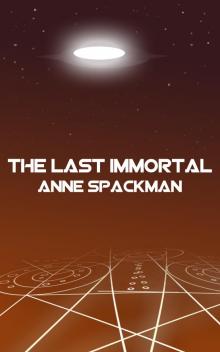 The Last Immortal : Book One of Seeds of a Fallen Empire
The Last Immortal : Book One of Seeds of a Fallen Empire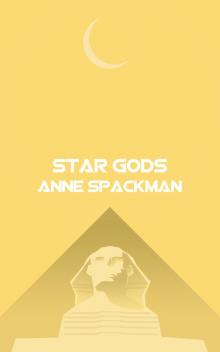 Star Gods: Book Four of Seeds of a Fallen Empire
Star Gods: Book Four of Seeds of a Fallen Empire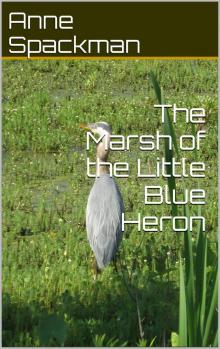 The Marsh of the Little Blue Heron
The Marsh of the Little Blue Heron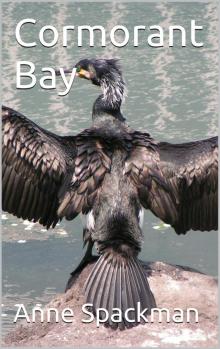 Cormorant Bay
Cormorant Bay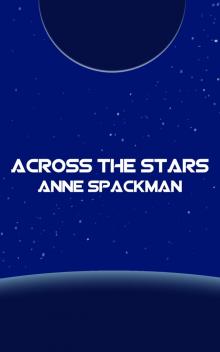 Across the Stars: Book Three of Seeds of a Fallen Empire
Across the Stars: Book Three of Seeds of a Fallen Empire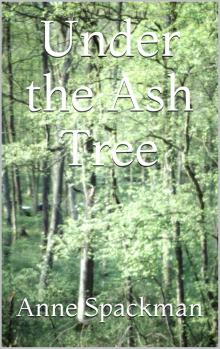 Under the Ash Tree
Under the Ash Tree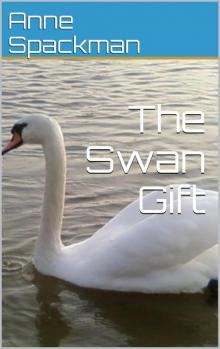 The Swan Gift
The Swan Gift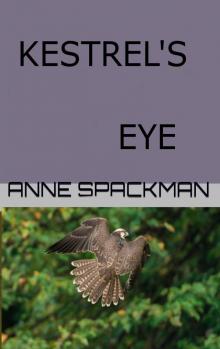 Kestrel's Eye
Kestrel's Eye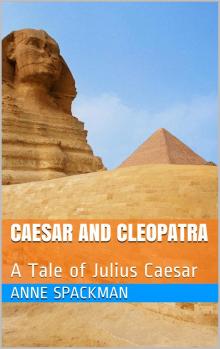 Caesar and Cleopatra: A Tale of Julius Caesar
Caesar and Cleopatra: A Tale of Julius Caesar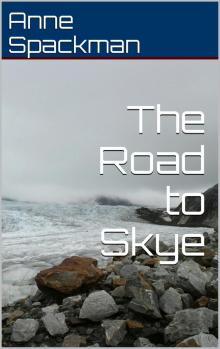 The Road to Skye
The Road to Skye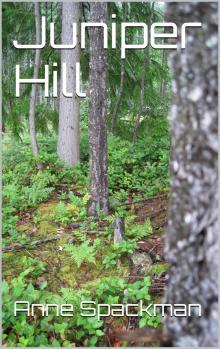 Juniper Hill
Juniper Hill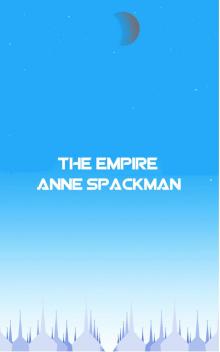 The Empire: Book Six of Seeds of a Fallen Empire
The Empire: Book Six of Seeds of a Fallen Empire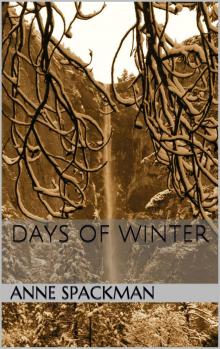 Days of Winter
Days of Winter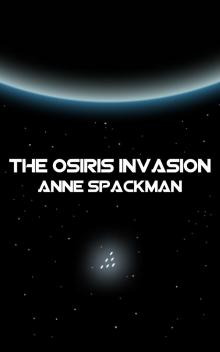 The Osiris Invasion: Book Two of Seeds of a Fallen Empire
The Osiris Invasion: Book Two of Seeds of a Fallen Empire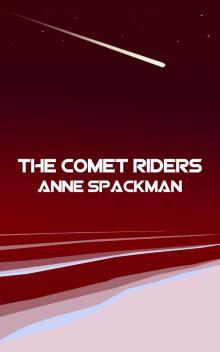 The Comet Riders: Book Five of Seeds of a Fallen Empire
The Comet Riders: Book Five of Seeds of a Fallen Empire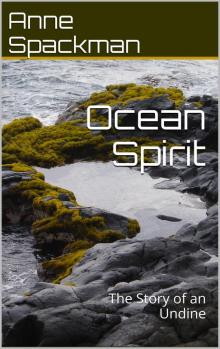 Ocean Spirit : The Story of an Undine
Ocean Spirit : The Story of an Undine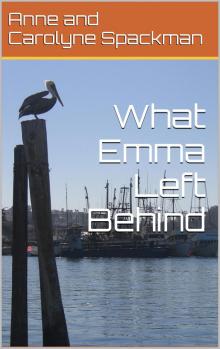 What Emma Left Behind
What Emma Left Behind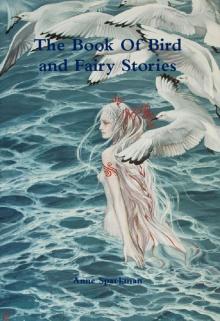 The Book of Bird and Fairy Stories
The Book of Bird and Fairy Stories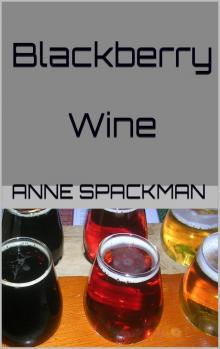 Blackberry Wine
Blackberry Wine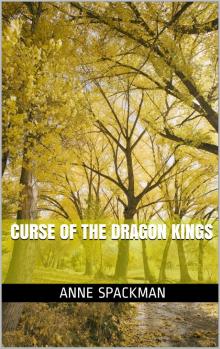 Curse of the Dragon Kings
Curse of the Dragon Kings